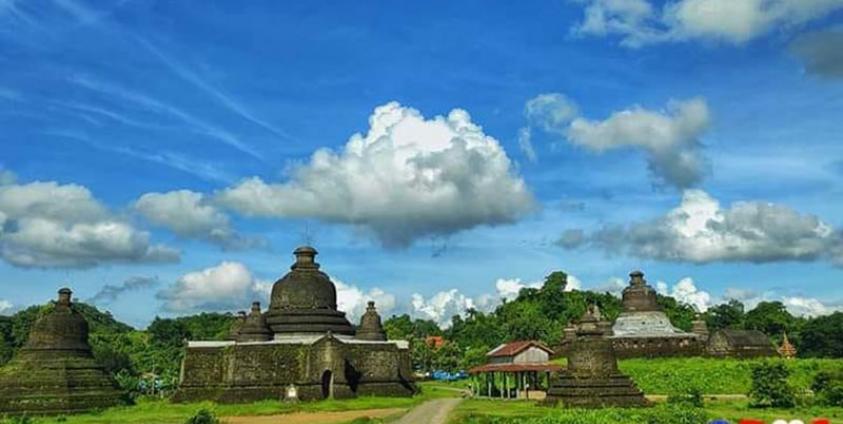Arakanese activists have lashed out at their ethnic Arakanese brethren serving in the regime’s administrative bodies, accusing them of failing to speak up for ordinary Arakanese people amid the renewed fighting between the Myanmar military and the Arakan Army (AA).
Those serving in the military regime’s administrative body, the State Administrative Council (SAC), and the regime’s Arakan State military council, will go down in history as traitors to the Arakanese people, said information officer Ko Oo Than Naing of the Arakan Students’ Union.
“Fierce clashes have happened in Arakan State, and there have been civilian casualties, and shelling of villages. But they have been tight-lipped about those crimes,” said Ko Oo Than Naing. “None of the members of the military council in Arakan State and ministers at the Arakan State government office stand by Arakanese people.”
He added: “They have taken seats in the military council claiming they do so to serve Arakanese people, but they don’t speak out or make a voice when Arakanese people are in trouble. So, we regard them as wrongdoers.”
The Arakan State Students’ Union released a statement on August 28 strongly condemning Arakanese politicians who are serving in the SAC and the regime’s Arakan State government for failing to speak out against the regime’s shelling and blockading of supply routes in Maungdaw, Rathedaung, Mrauk-U and Paletwa townships.
At the Union level, Daw Aye Nu Sein is a member of the SAC while Arakanese politician U Zaw Aye Maung serves as the junta’s deputy ethnic affairs minister. In Arakan State, Dr. Aung Kyaw Min serves as the chief minister of the regime’s state government; U Than Tun acts as resources minister, U San Shwe Maung serves as commerce minister, and U Hla Thein is the state’s advocate-general.
Daw Aye Nu Sein served as a lawyer for Arakanese people who were detained on suspicion of having ties to the AA during two years of fighting from late 2018 to November 2020. She was also previously a senior figure in the Arakan National Party (ANP), which enjoyed popular support among Arakanese people in democratic times.
U Than Tun was a social activist who actively helped civilians killed, injured and displaced during previous fighting between the Myanmar military and Arakan Army.
They have been tight-lipped about junta actions, said an Arakanese politician.
“Perhaps they might have concerns for possible punitive action if they speak out. They might still be punished even if they resign. Again, they might not be able to resign because the regime may think their resignation would tarnish its political image,” he said.
“But they can still speak out in a roundabout way. They can say they don’t want to see the two sides engaged in fighting in Arakan. Rather than being silent, they could urge both sides to exercise restraint and call for help for the people. As they are totally tight-lipped, they draw ire from people,” he added.
Some 300 civilians died and more than 600 were injured in the previous fighting from late 2018 to November 2020. More than 200 people were charged under the Counterterrorism-Law during that period.
More recently, a series of clashes have taken place in Arakan State after months of military tensions. In August, four civilians including a child were killed and eight others were injured in a junta shelling of a Mrauk-U Township village.
Daw Nyo Aye, chair of the Rakhine Women’s Network, has urged Arakanese politicians on the regime’s administrative bodies to help Arakanese people.
“We have SAC members and ministers in the Arakan State council. They should speak up for Arakanese people,” she said.
When asked about the criticisms, Daw Aye Nu Sein declined to answer. DMG’s calls to Arakan State Resources Minister U Than Tun and Arakan State spokesman and advocate-general U Hla Thein went unanswered.
Some 60,000 people displaced by the fighting between 2018 and 2020 remain at displacement camps in Arakan State, and some 6,600 people have been newly uprooted by fighting and escalating military tensions in Maungdaw, Rathedaung, Mrauk-U and Paletwa townships. Many of the recently displaced are facing shortages of food and other material needs.








